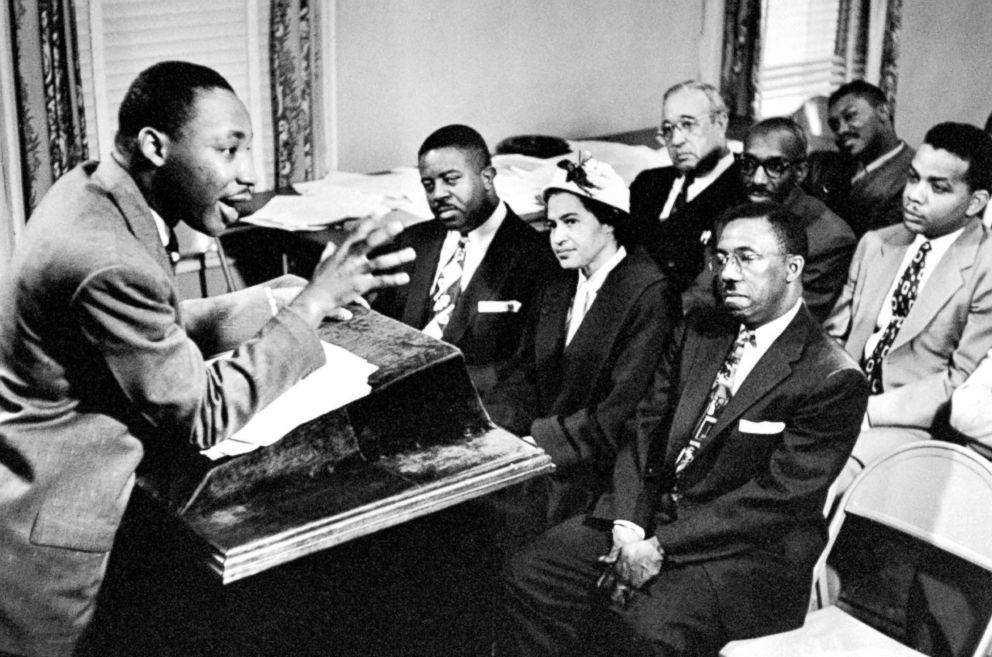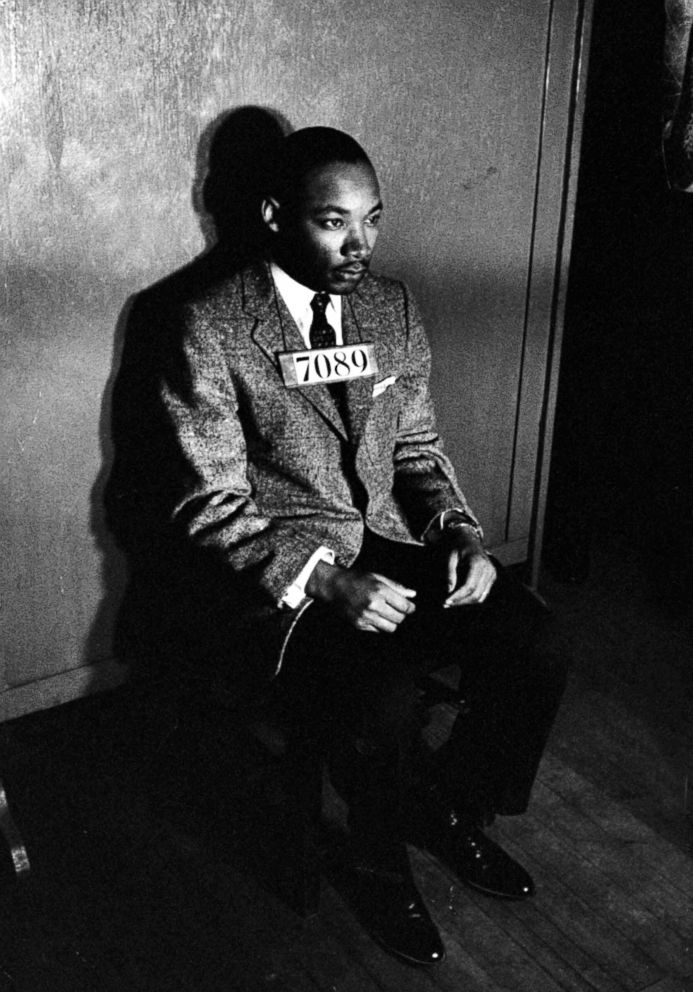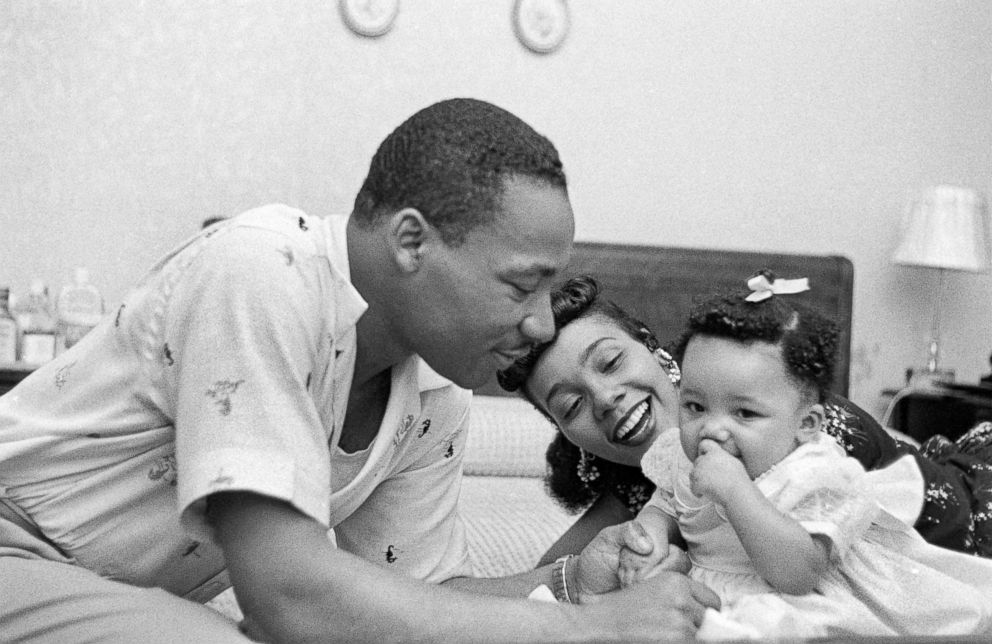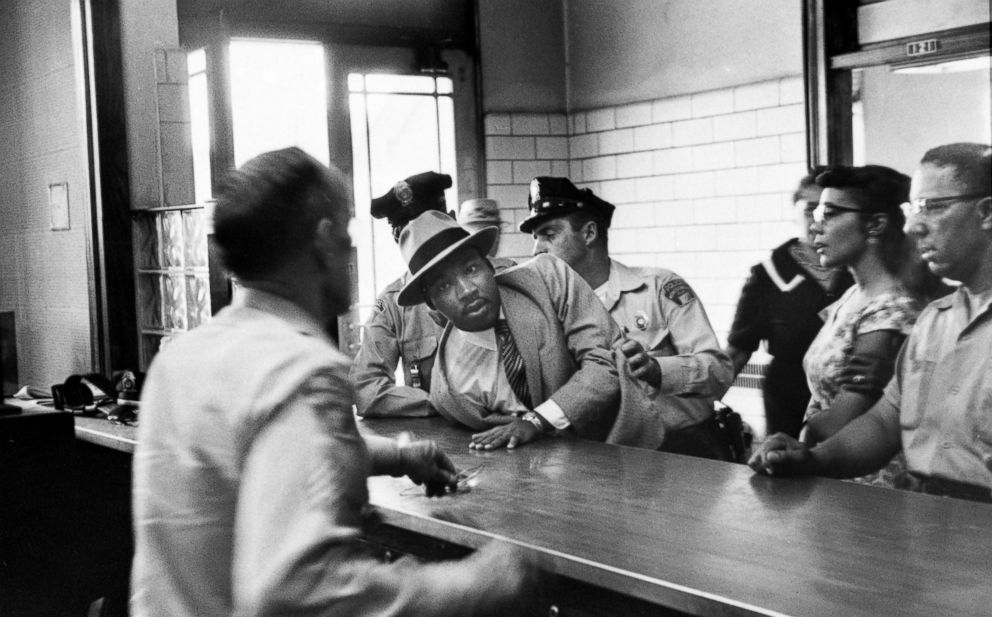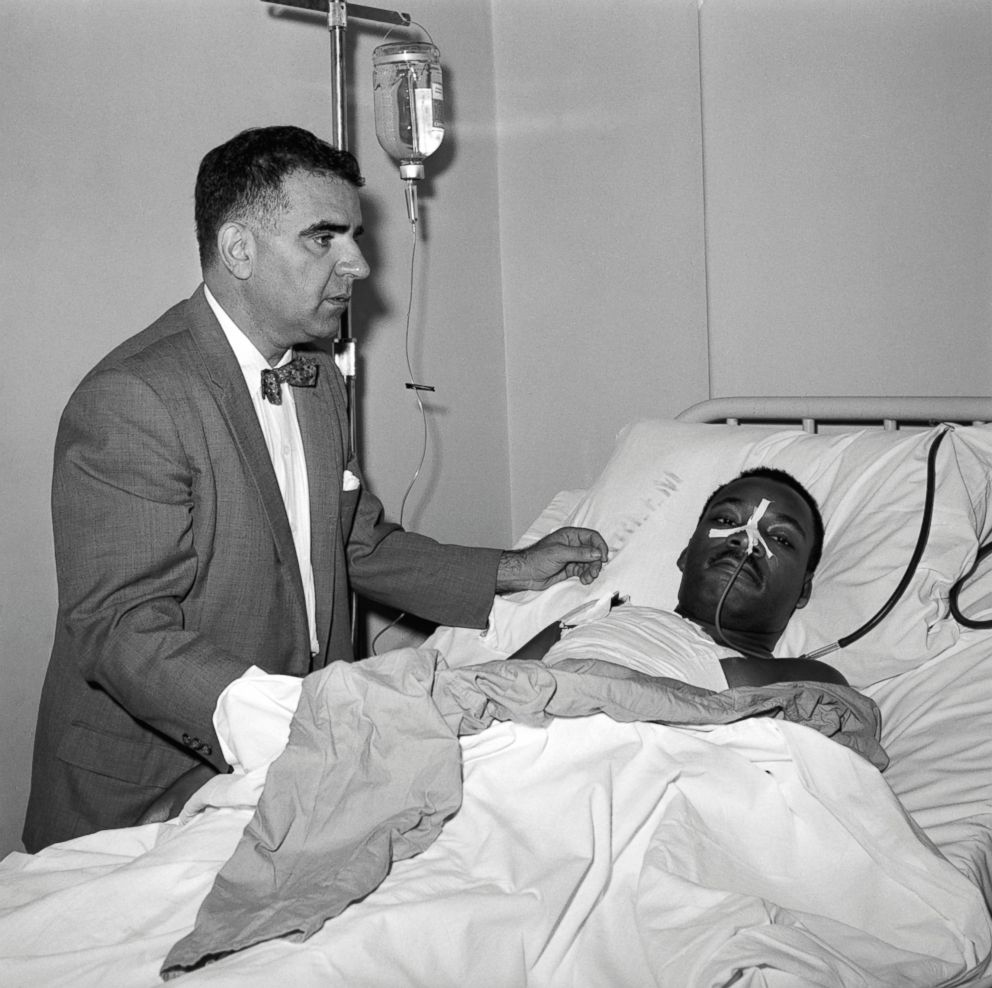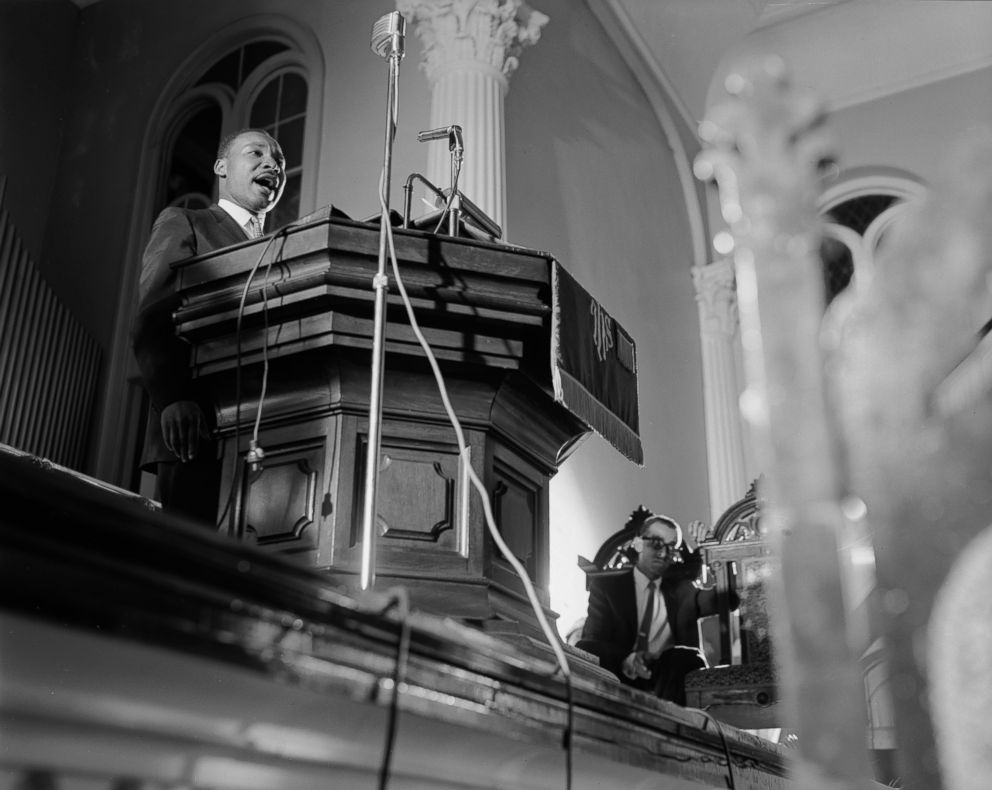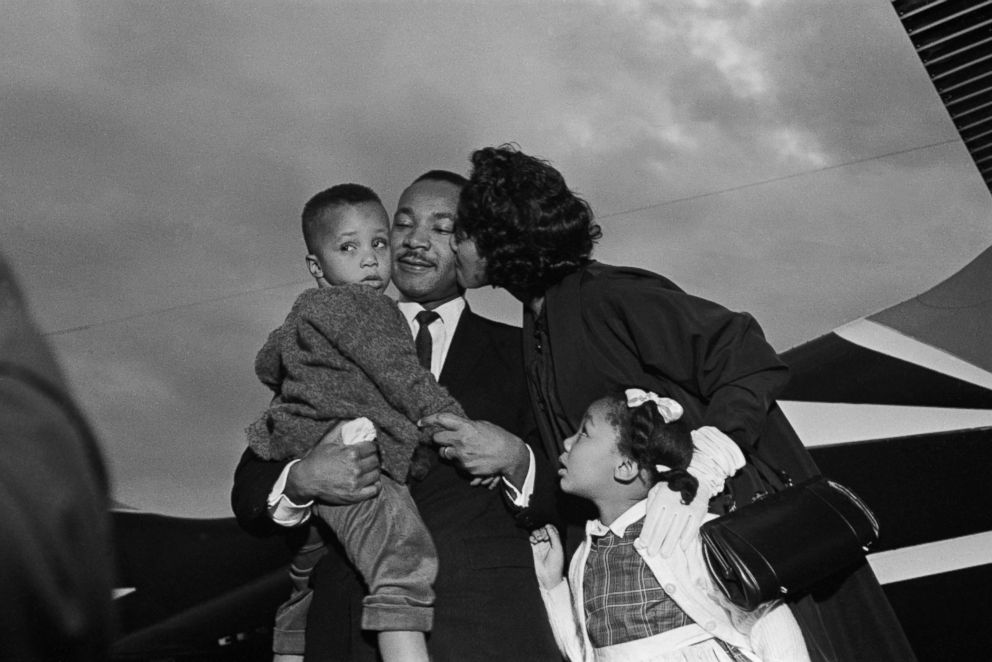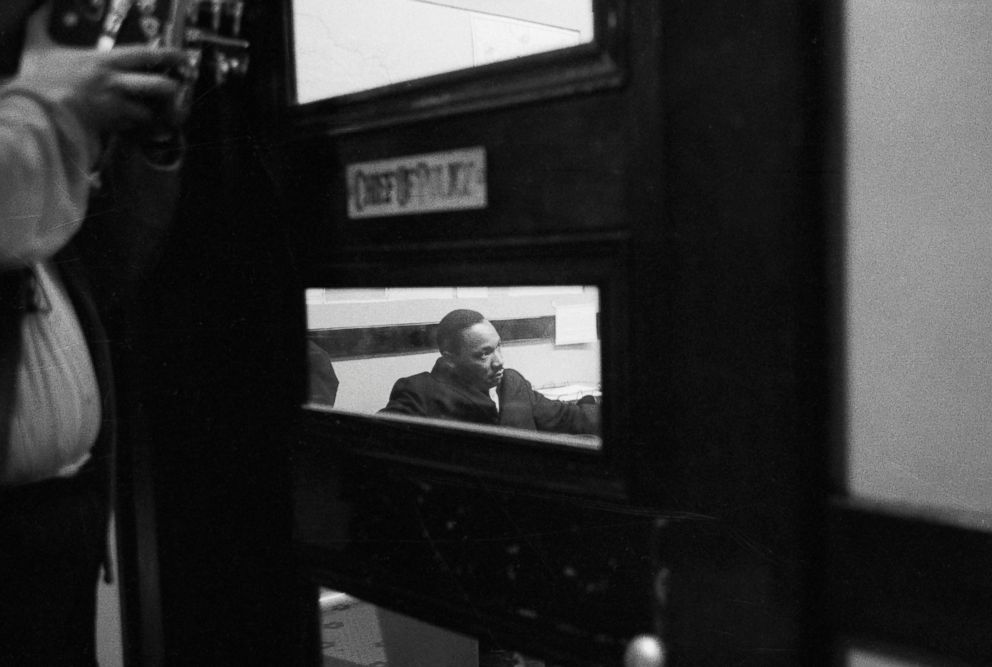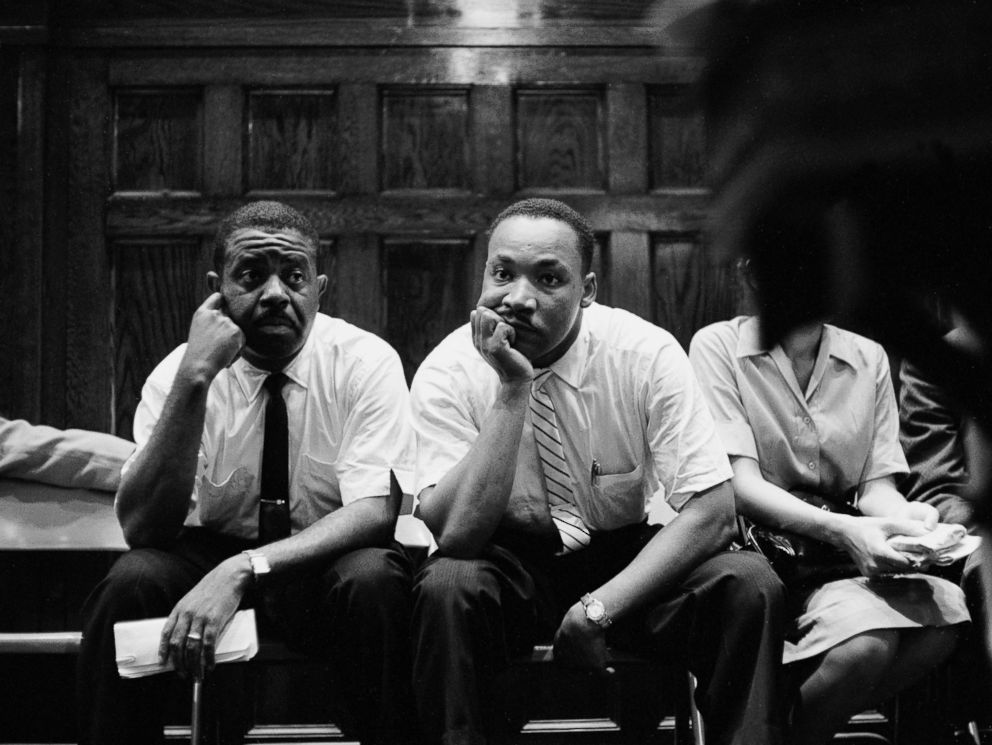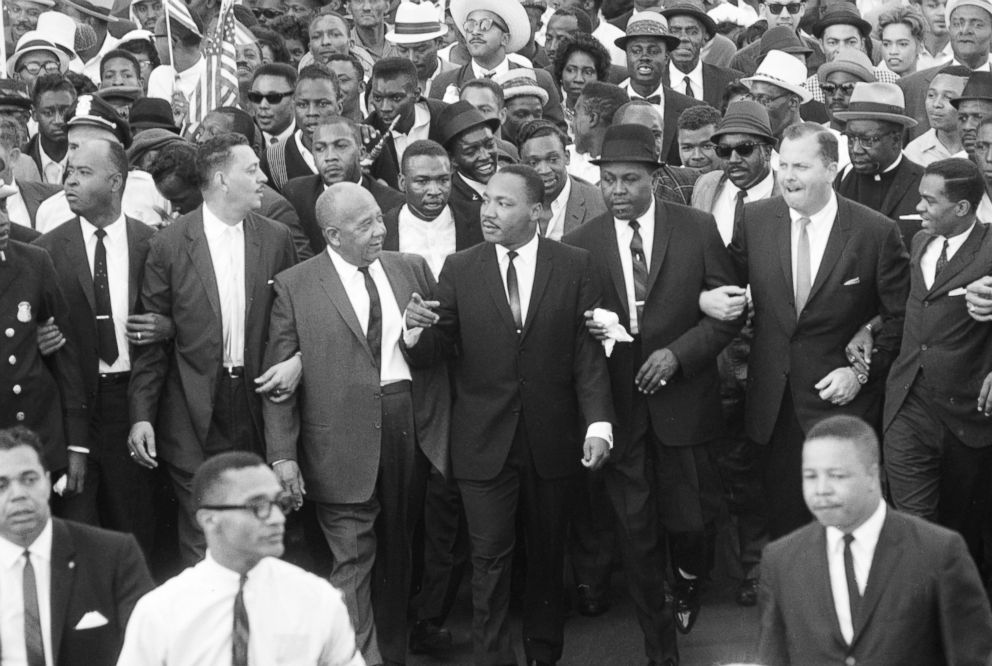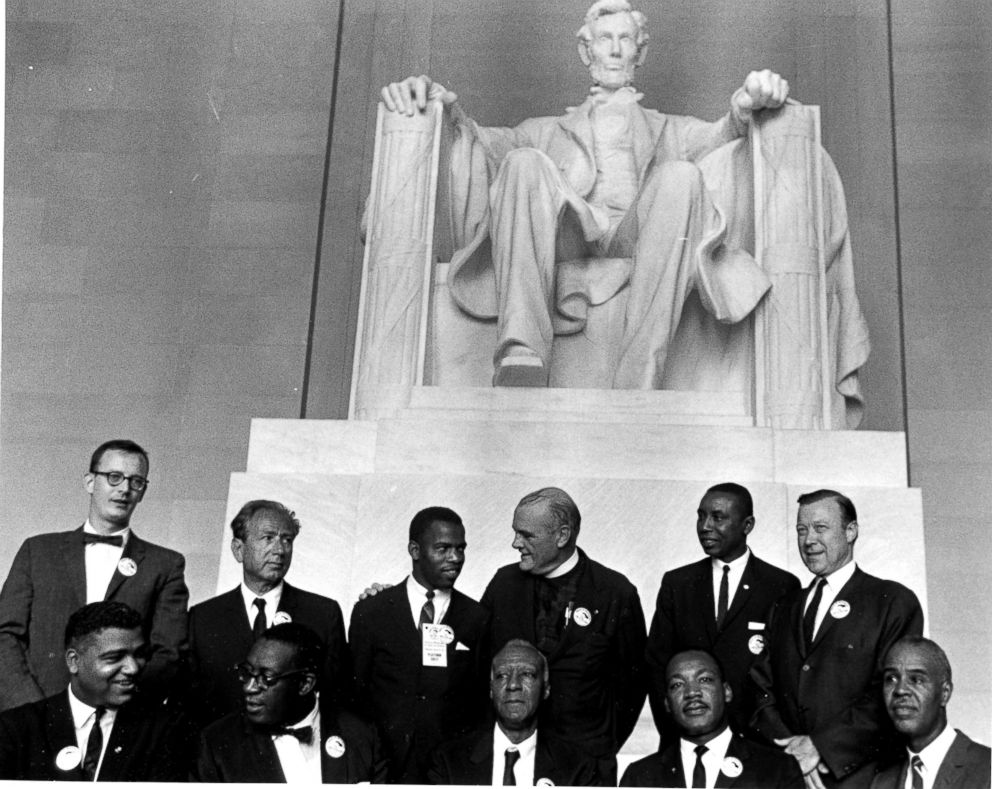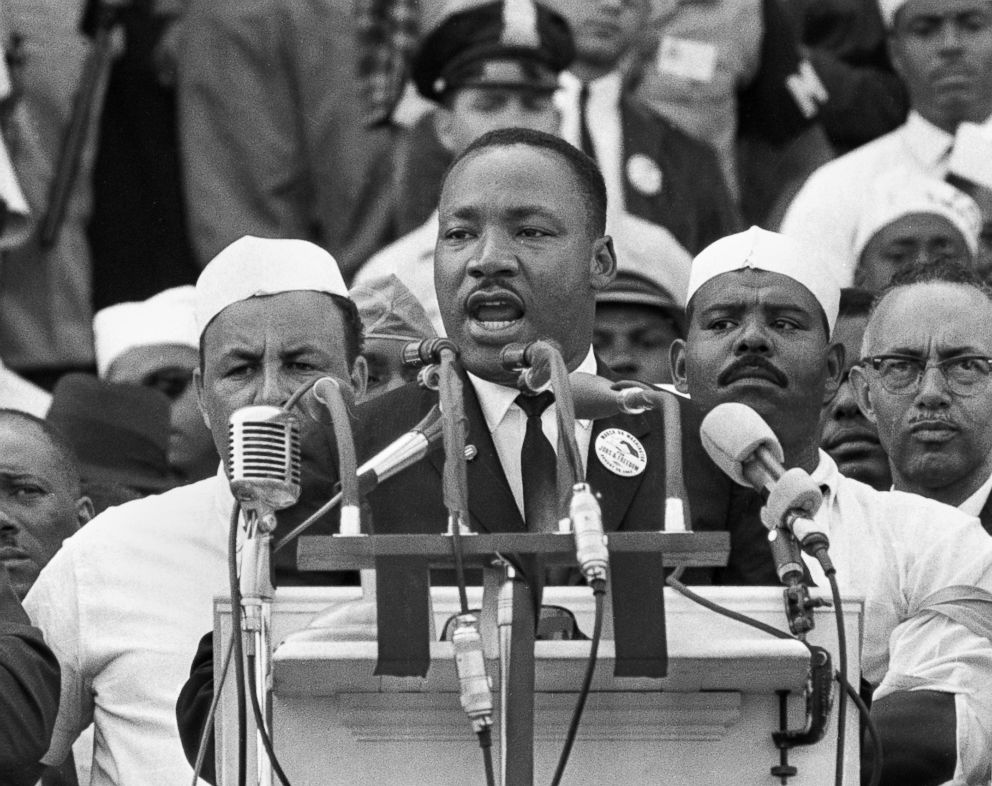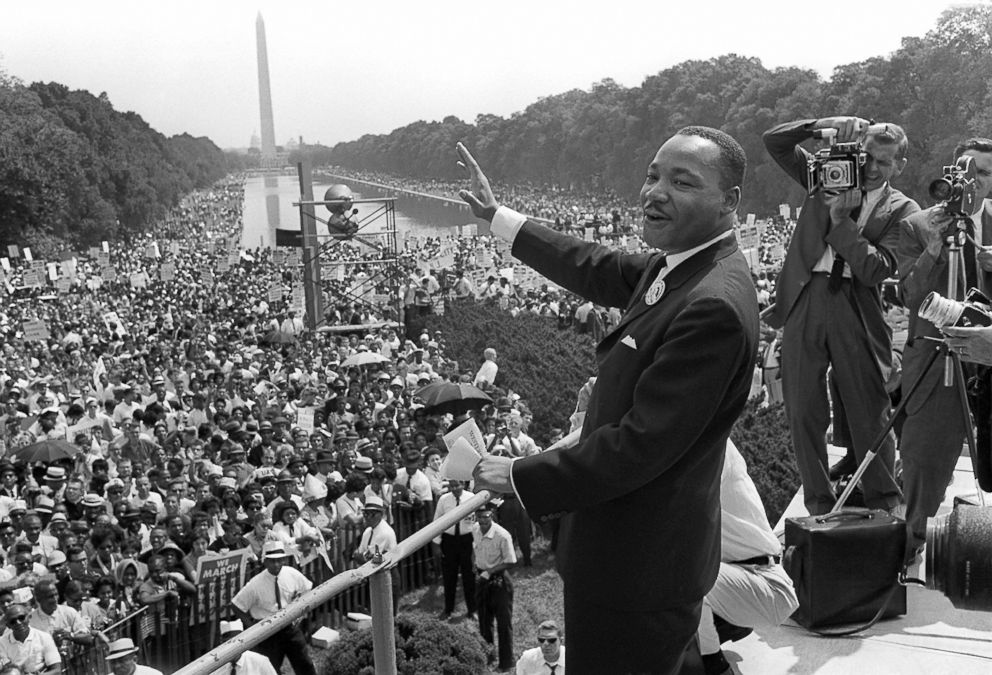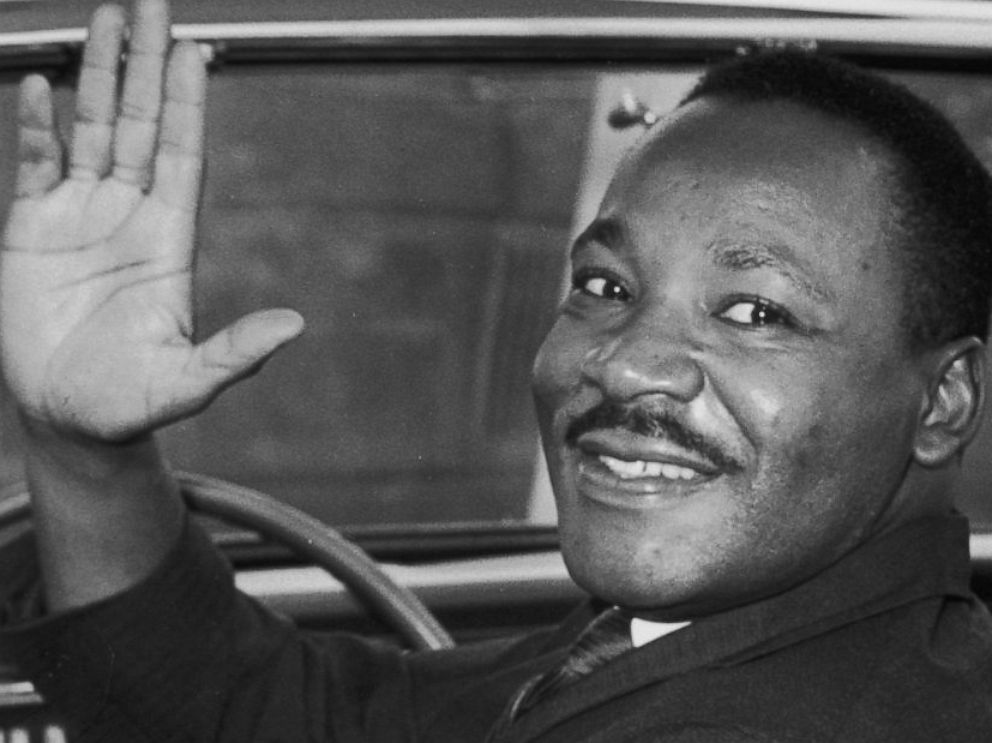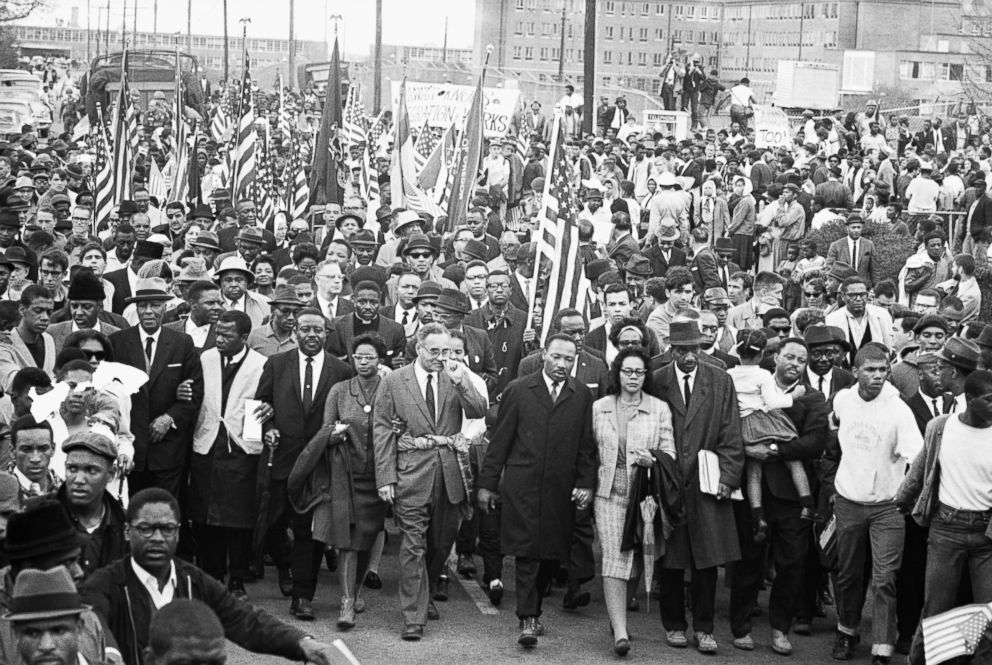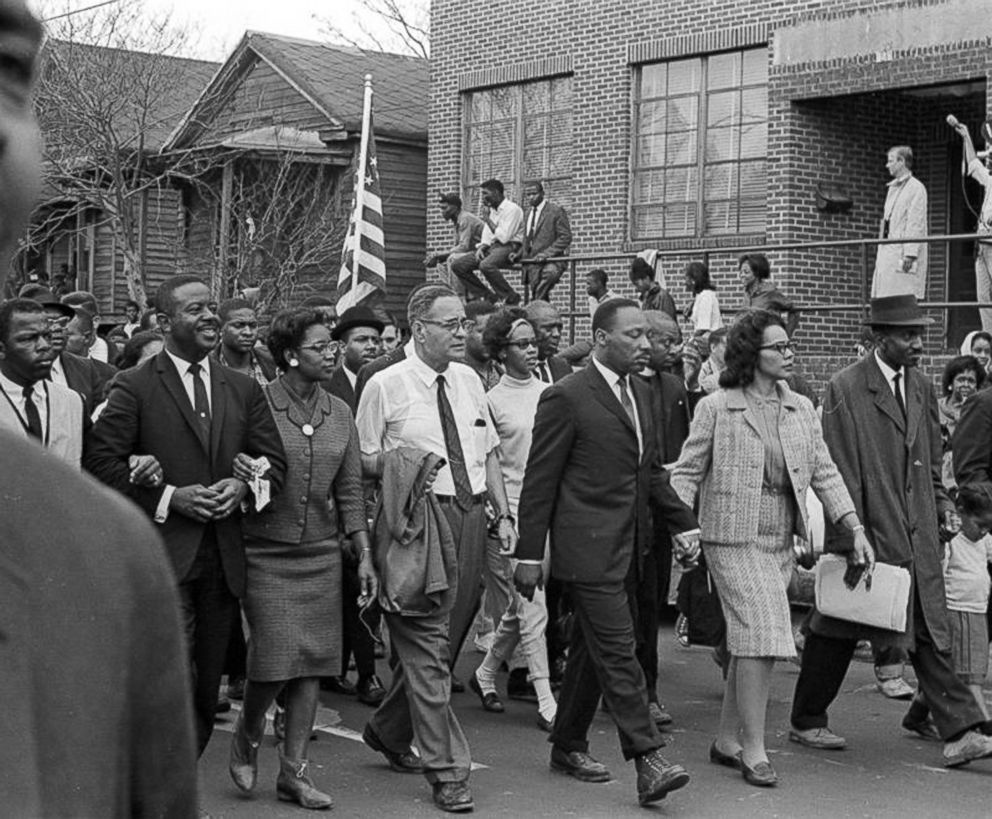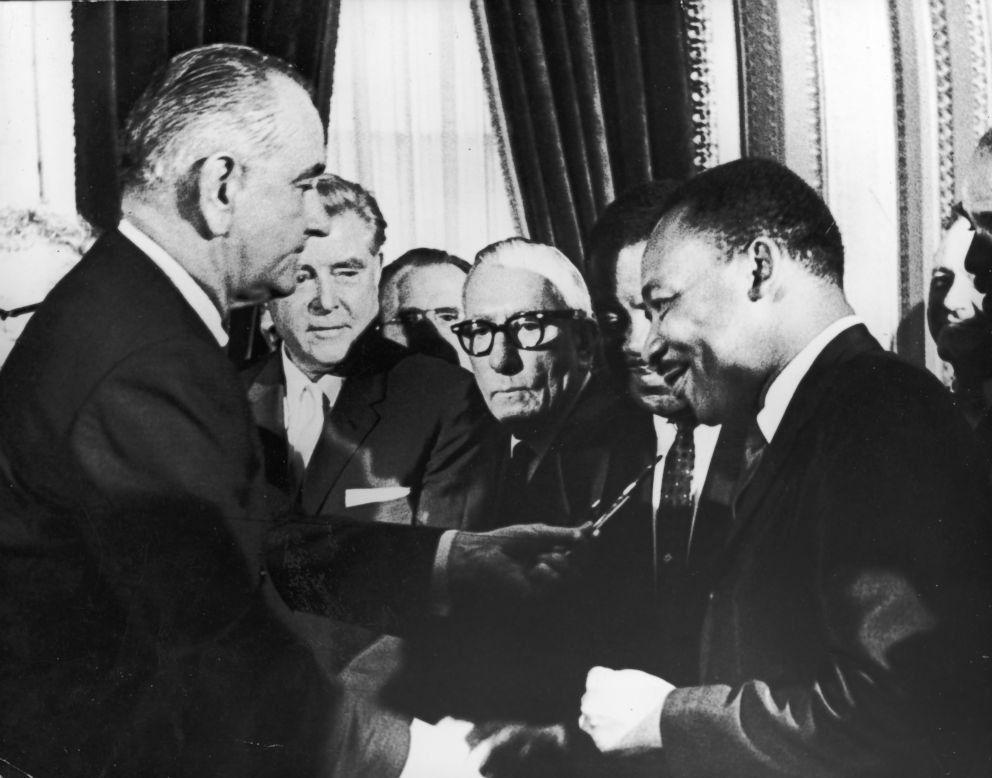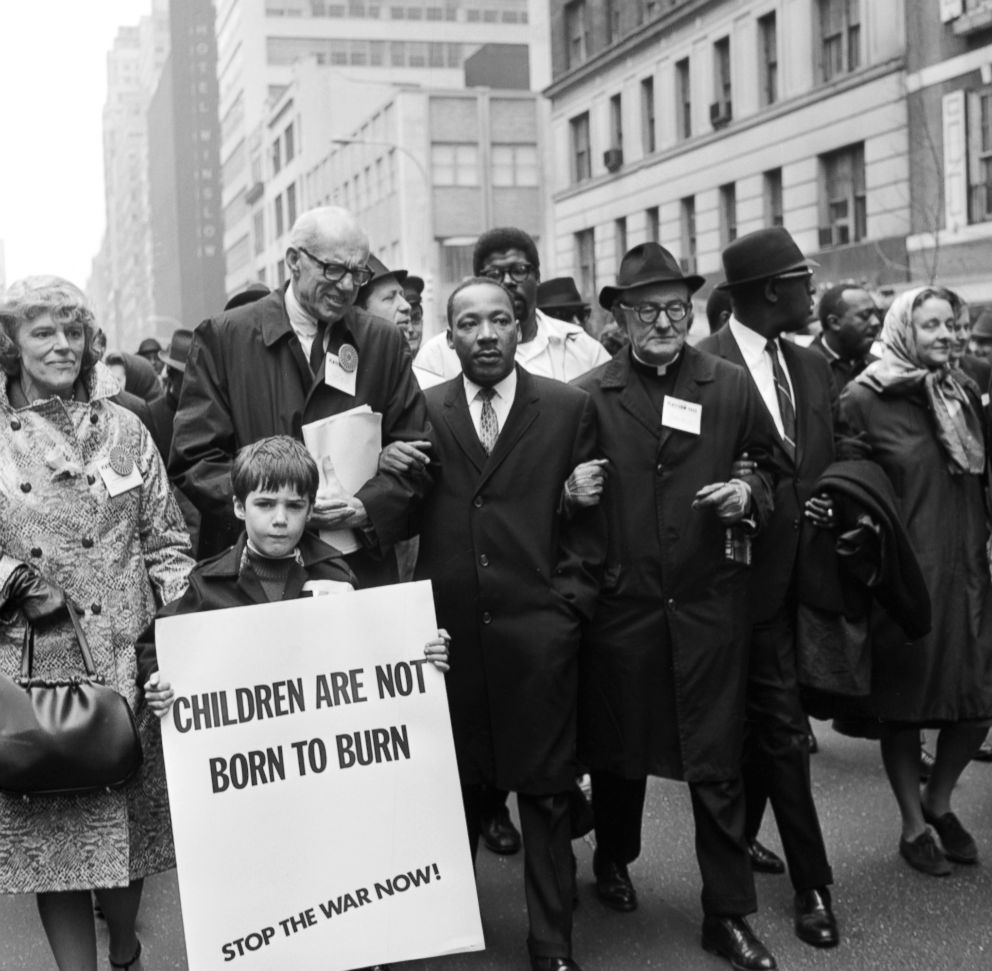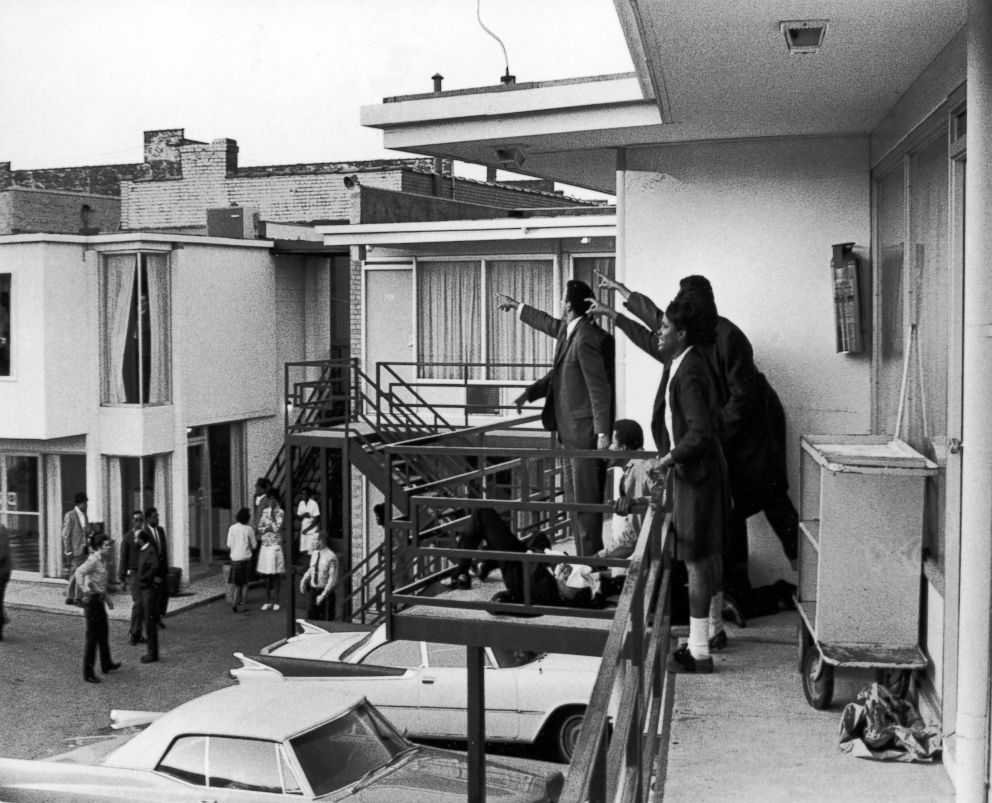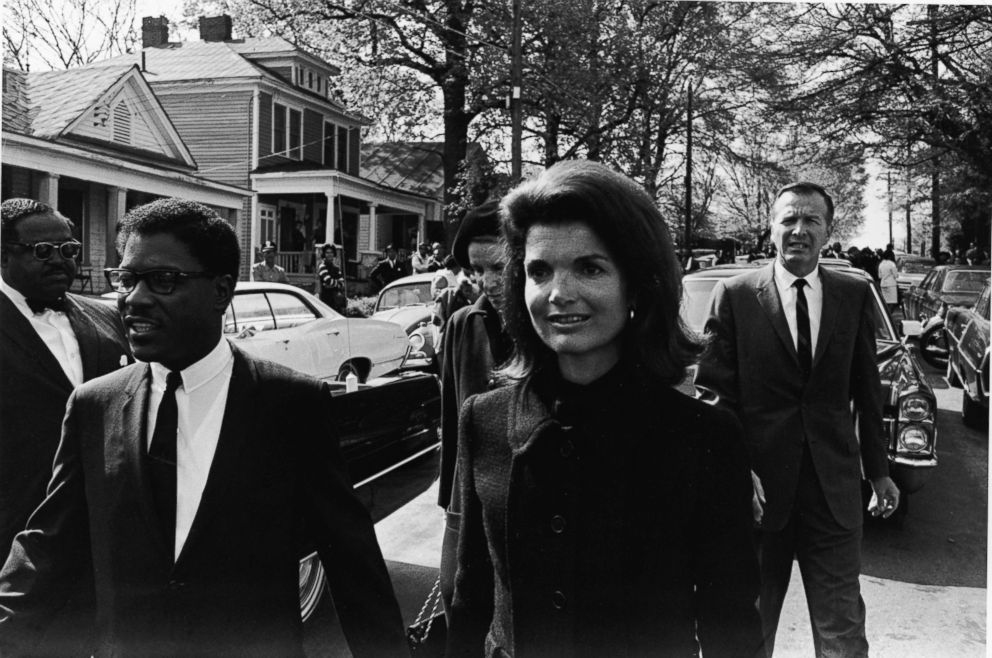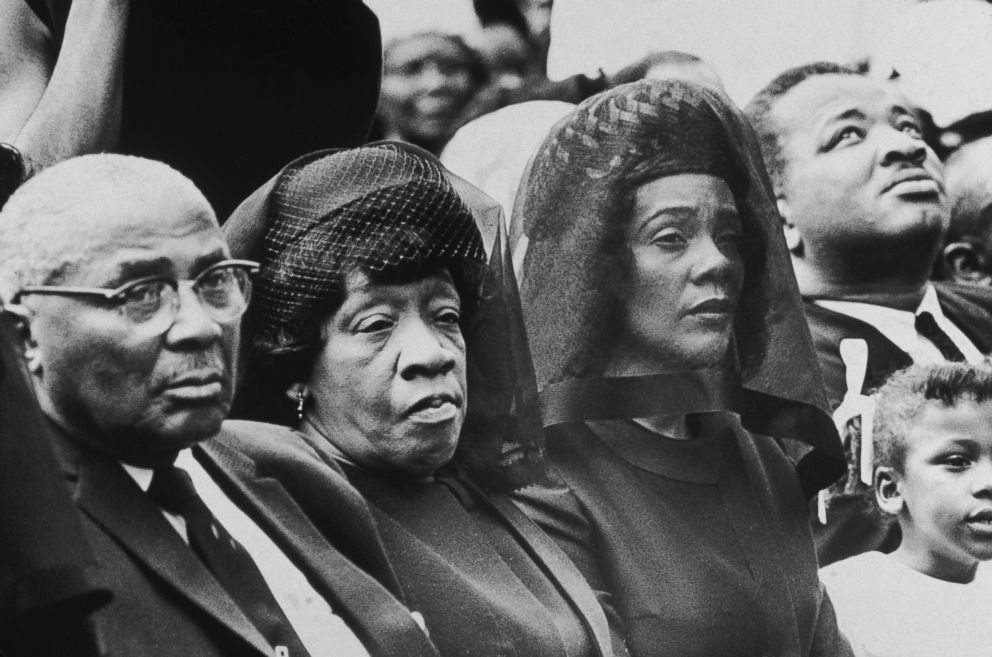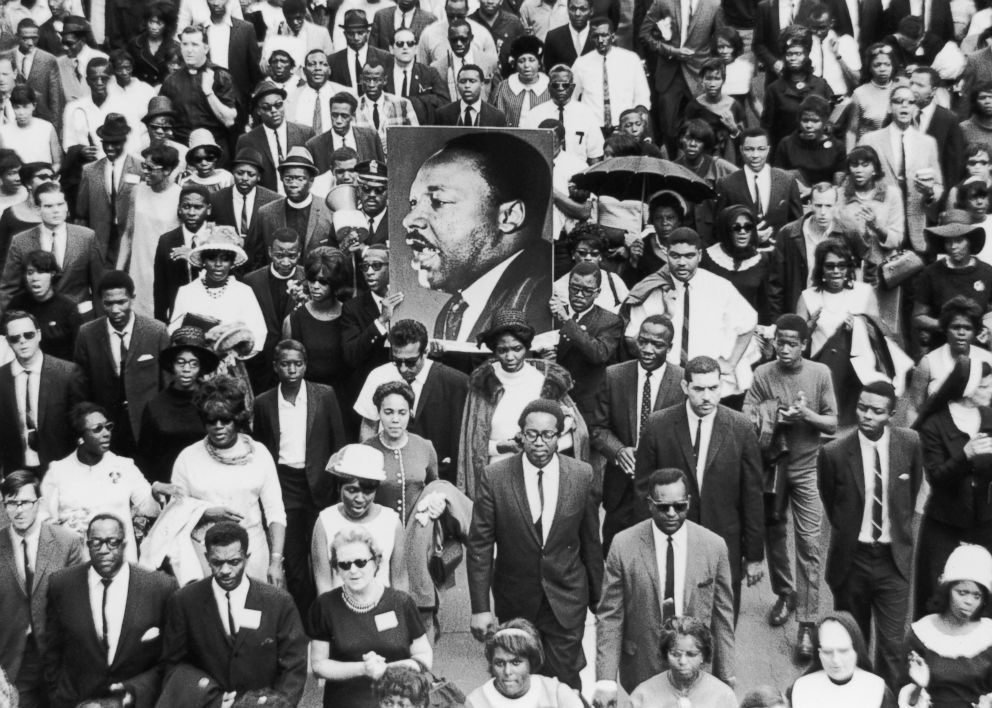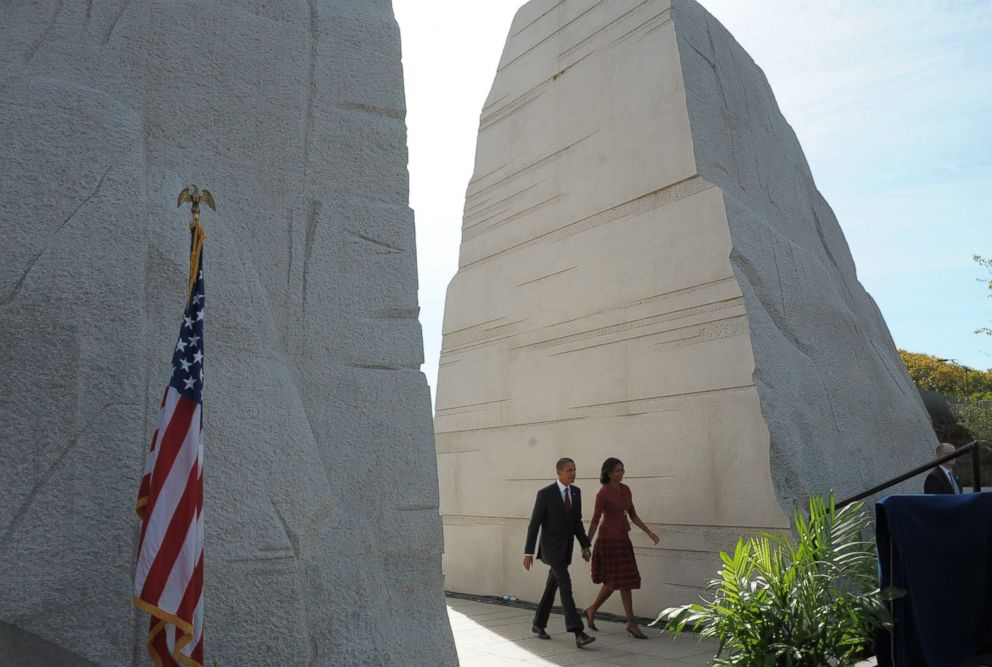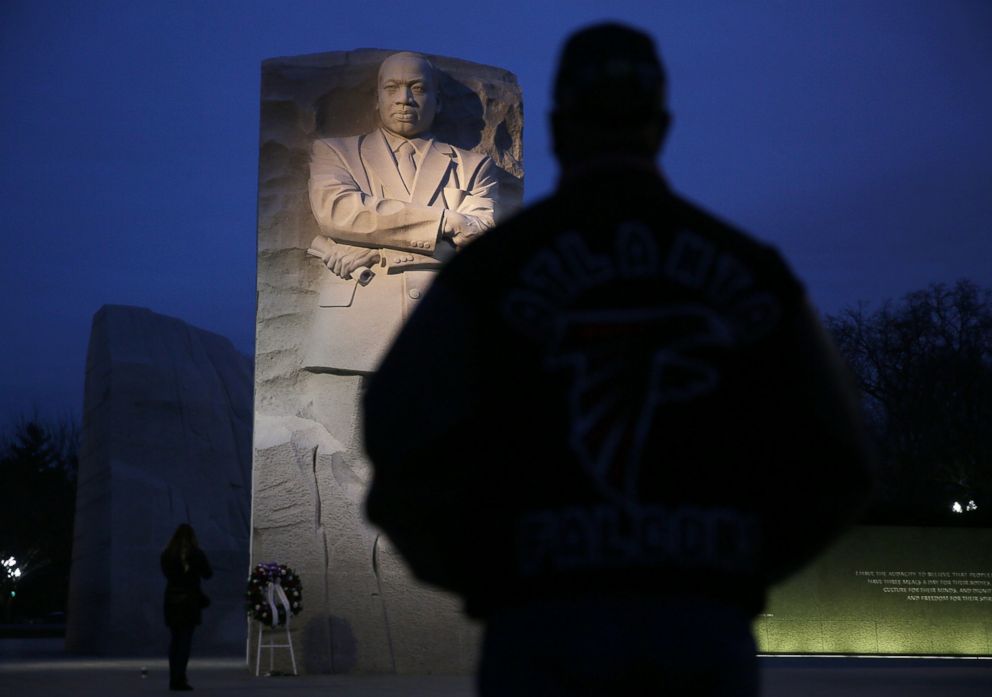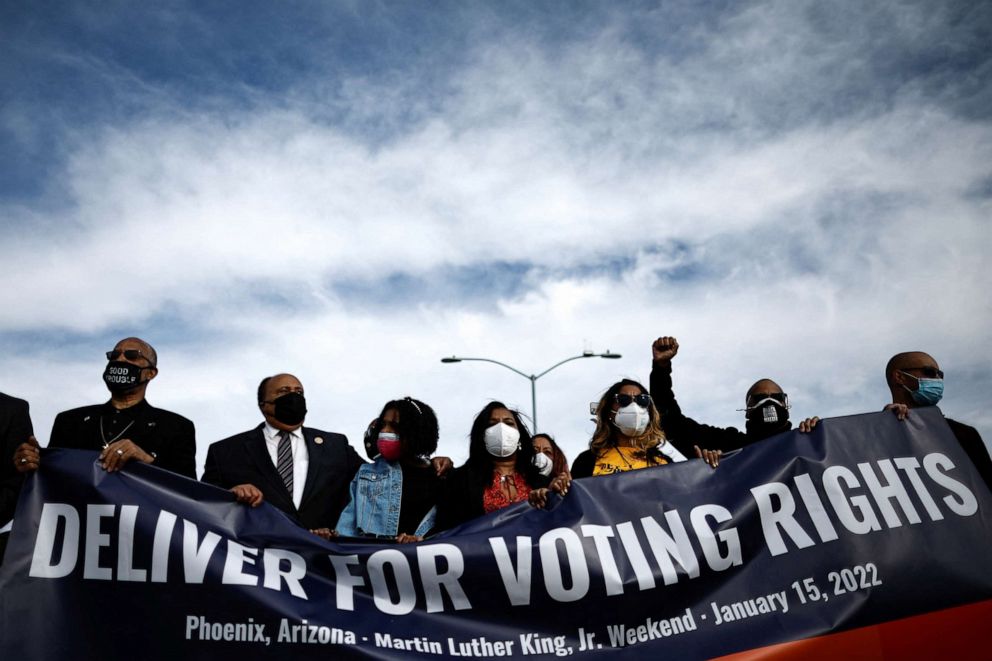Martin Luther King Jr.'s daughter asks for people to commit to her father's fight
Bells tolled across the nation to remember the civil rights icon.
Bell-chiming ceremonies were held all over the nation Wednesday evening at 6:01 CT to commemorate the assassination of the Rev. Martin Luther King Jr. on the 50th anniversary of his death.
Members of King's family were gathered in Atlanta, King's birthplace, during the moment of silence. A large crowd also gathered in Memphis, where he was killed.
The bells each chimed 39 times, representing each year of King's life.
Emotional speeches and prayers were said Wednesday as Americans of all colors and creeds pause to remember King's life and civil rights legacy.
A huge crowd started to gather early Wednesday morning at the Lorraine Motel in Memphis, Tennessee, where King was killed by an assassin's bullet on April 4, 1968, and which has since become a shrine to the Nobel Peace Prize winner.
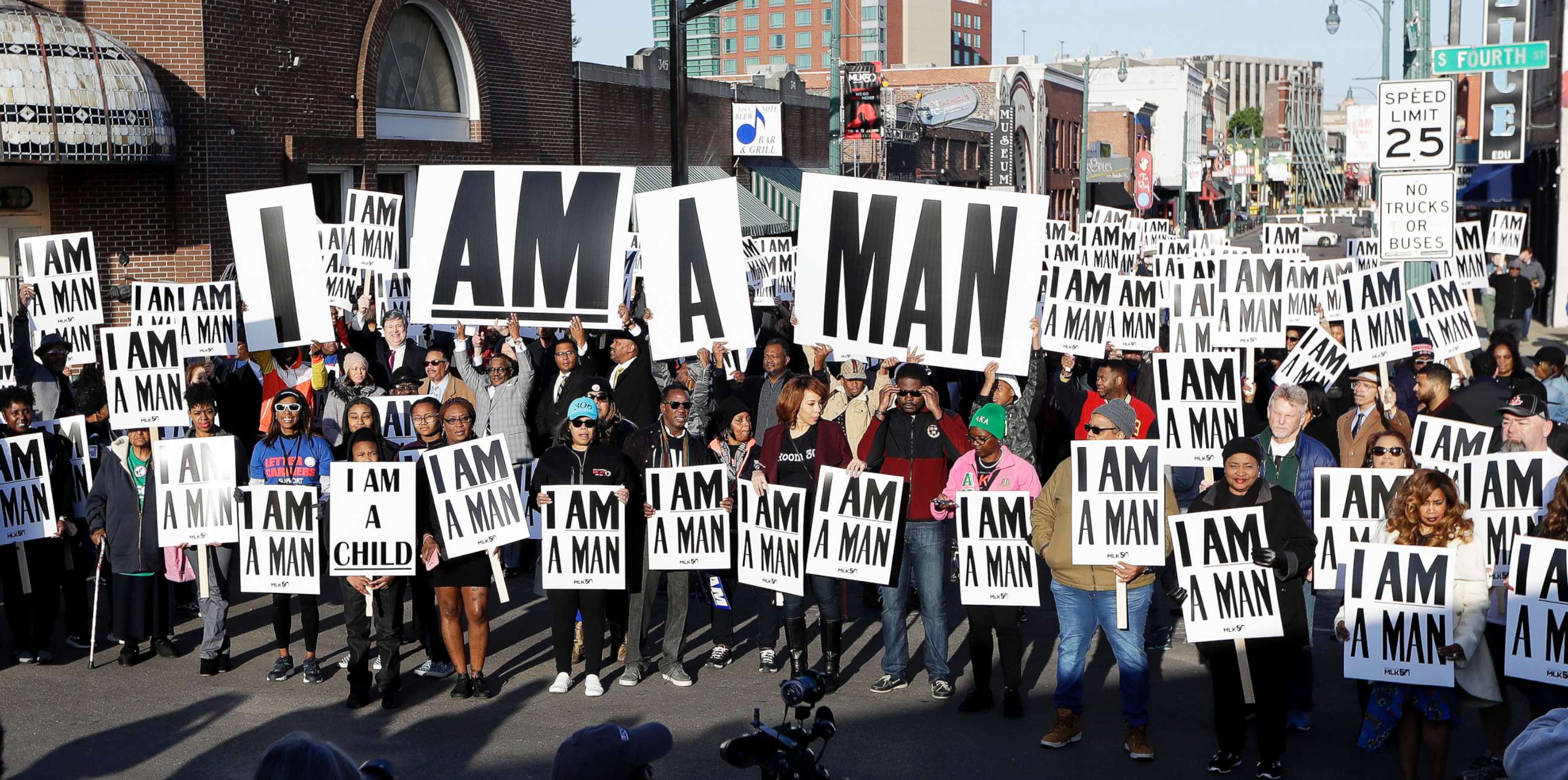
Events in Memphis got underway with a march downtown commemorating the 1968 sanitation workers strike that brought King to the city at the time he was killed. Some of those who participated in the march where sanitation workers the civil rights leader supported in their call for better wages and working conditions.
Similar to march participants in 1968, many in joining Wednesday morning's march held signs reading, "I Am a Man."
In Atlanta, Georgia, Bernice King, the youngest of Martin Luther King Jr.'s four children, told ABC News that she hopes people will take the occasion to commit themselves to carrying on her father's fight.
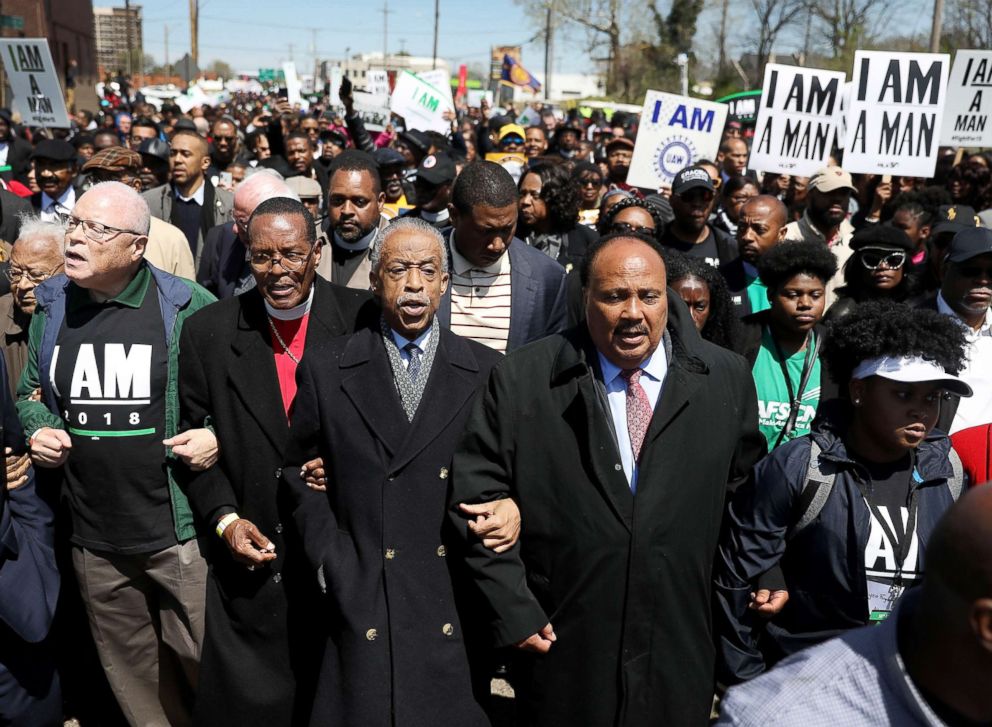
"I think people need to know that we can't just pause in this moment and honor a great man, we really have to consider embracing his mission and looking at some of the mandates that he left for us," said Bernice, while standing in front of the eternal flame dedicated to her father. "If we're really serious about creating a just, humane and peaceful world, he provided us with that blueprint of how to overcome what he called, 'the triple evils of poverty, racism, and militarism.'
"Let's not just keep talking about Dr. King and what Dr. King did and what Dr. King said, let's start trying to live and fulfill the mission that he was on."
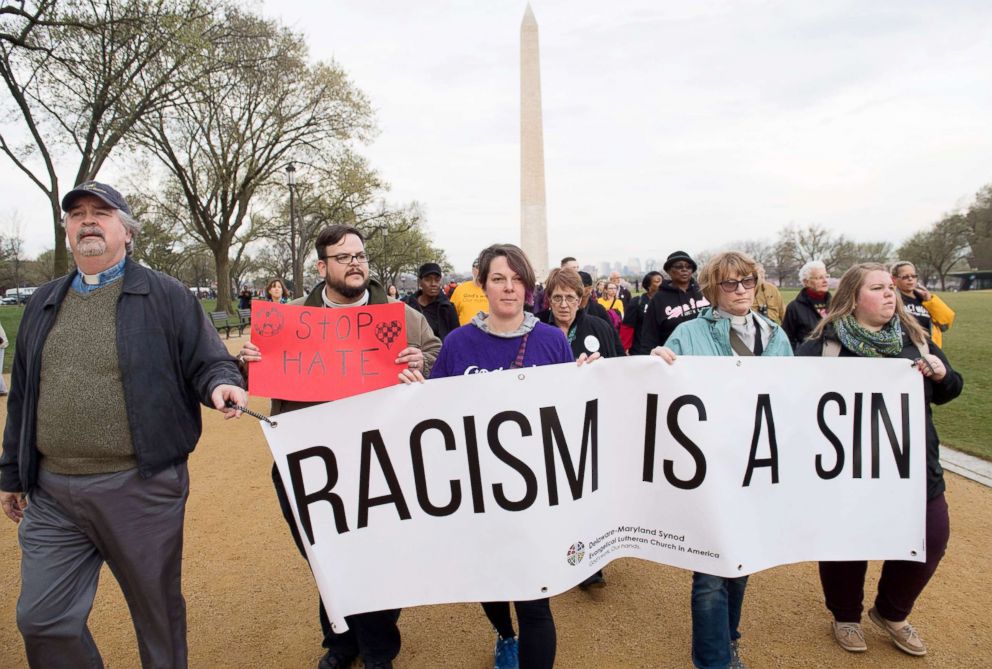
An event in the Indianapolis park where Sen. Robert F. Kennedy broke the news five decades ago to a crowd that Martin Luther King Jr. had just been killed, Kennedy's daughter, Kerry Kennedy, and Georgia Rep. John Lewis spoke to a large gathering, who braved cold temperatures and snow flurries.
"Daddy spoke from his heart," Kerry said of her father, who at the time was running for president and would be gunned down by an assassin a month later in Los Angeles. "He appealed for our country to end the divisions. He said, 'What we need in the United States is not violence and lawlessness, but love and a sense of compassion towards those who are suffering, whether they be white or they be black.'
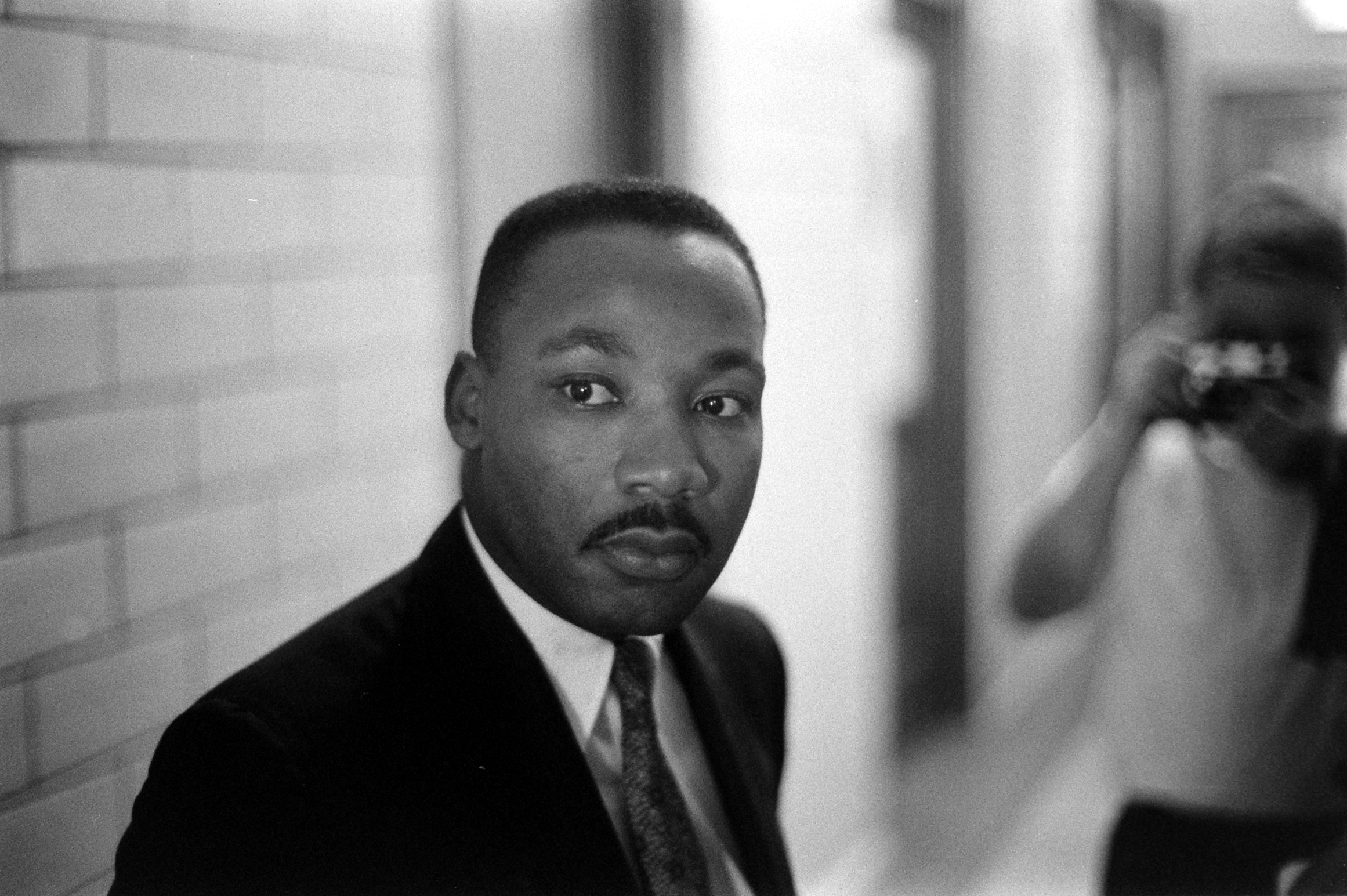
"It is easy to hear Robert Kennedy's voice speaking out in our country as he did 50 years ago on the madness of gun violence, the shame of police brutality, the need for compassion and welcoming immigrants and refugees, defying the easy call to war. And where war has broken out, the moral necessity of seeking peace."
Lewis, 78, said it was his first visit back to the park -- now named the Martin Luther King Jr. Park -- since he organized the rally Robert Kennedy spoke at where he calmed the crowd in the city, as riots broke out in more than 100 other cities across the country.
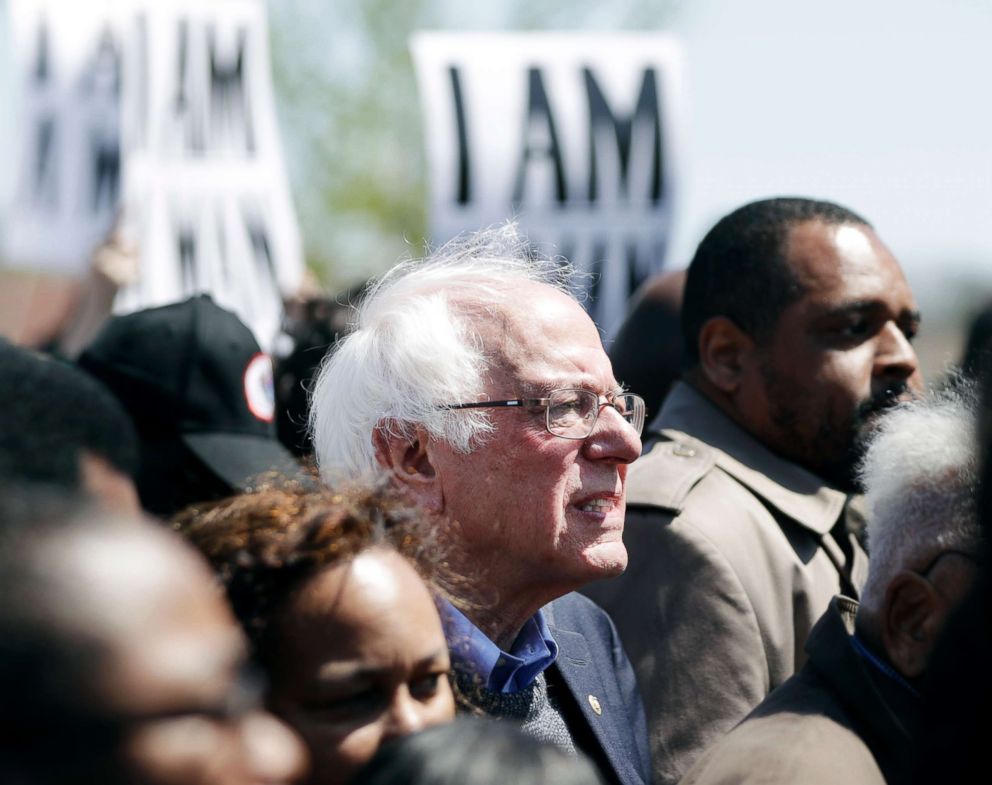
"To be here in the park that night of April 4, 1968, when he announced ... that Dr. King had been assassinated, I cried," Lewis said in an emotional speech. "I lost a friend, I lost a big brother, I lost my leader. If it hadn't been for Martin Luther King Jr., I don't know what would have happened to our nation. I don't know what would have happened to many of us that had been left out and left behind. I thank God that he lived. He taught us how to live. He taught us how to stand up, to be brave, courageous and bold, and to never give up."
He was shot to death on the second-floor balcony of the Lorraine Motel.
At the Lorraine Motel, now the headquarters of the National Civil Rights Museum, a new exhibit called "MLK50: A Legacy Remembered" opened to the public Wednesday, featuring photos, recorded speeches and personal belongings of the civil rights icon.
Martin Luther King Jr.: A life in pictures
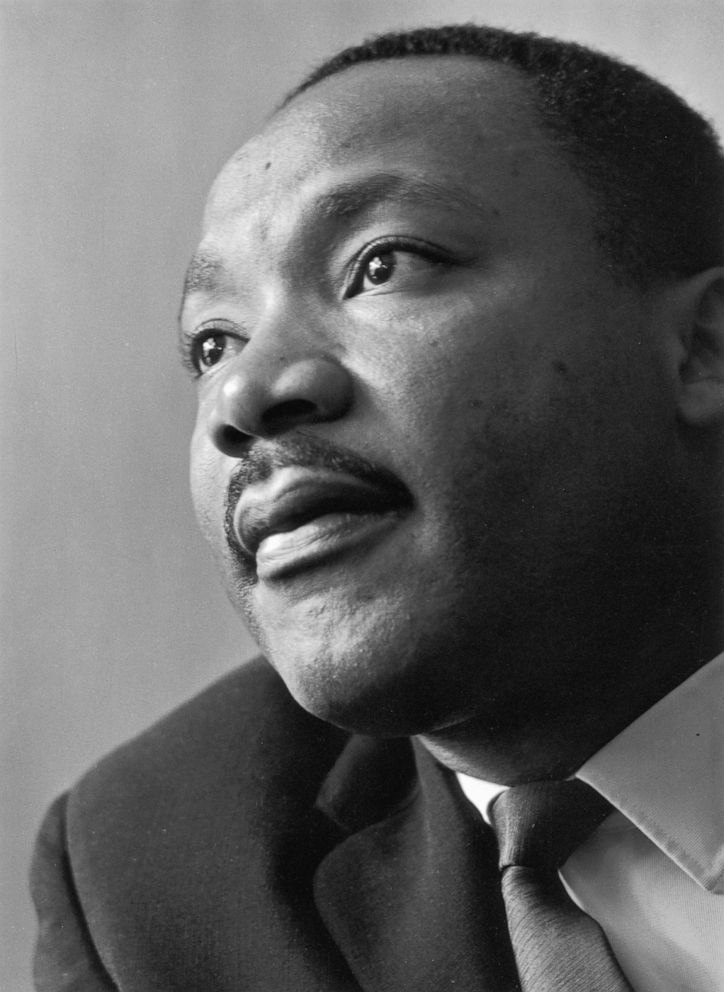
Bernice previewed the exhibit this week along with Eric Holder, the first African-American U.S. attorney general.
"Other than say maybe my father, he's the man who's probably had the greatest influence on my life," Holder, who was 17 years old when King was killed, told ABC affiliate WATN in Memphis.
The day-long commemoration at the National Civil Rights Museum will include dances and speeches aimed more at how Martin Luther King Jr. lived rather than how he died.
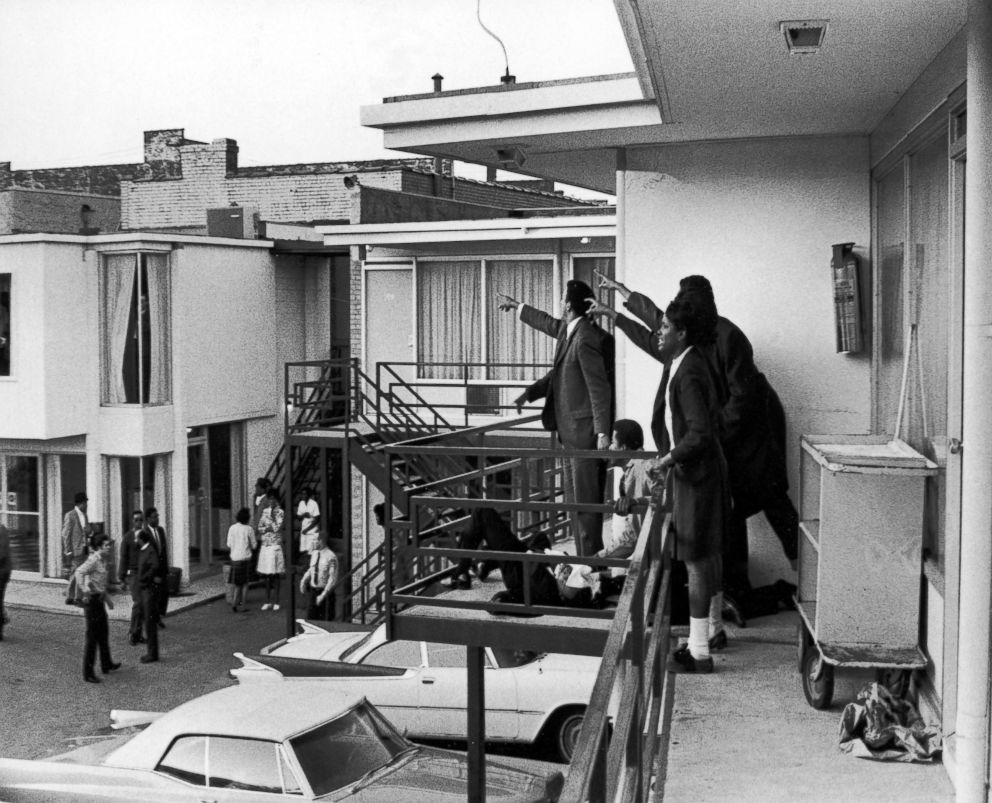
A group of teenagers and adults were also scheduled to complete a 50-mile march Wednesday in Memphis after starting it on Saturday in Dundee, Mississippi, in honor of Martin Luther King Jr.
"I hardly ever make a speech without quoting him," Andrew Young, the former United Nations ambassador, Georgia congressman and mayor of Atlanta, told ABC News of his partner in the fight for civil rights.
He said Martin Luther King Jr. taught him how to believe in "impossible dreams."
"I think most of the ideas that I had, including the idea of bringing the [1996] Olympics to Atlanta, was an impossible kind of dream," said Young.
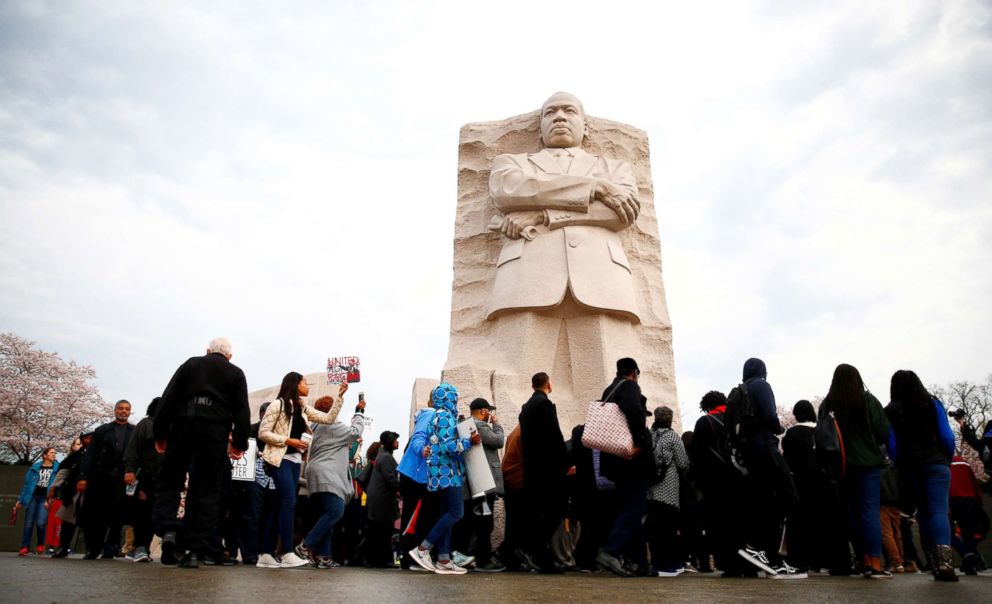
"But I have been through two or three impossible kind of dreams. It was an impossible dream that we could change Selma and we did it in three months," he said of the 1965 march he helped Martin Luther King Jr. organize that led to African-American citizens in Alabama gaining the ability to exercise their constitutional right to vote.
"The civil rights bill was an impossible dream," Young added.
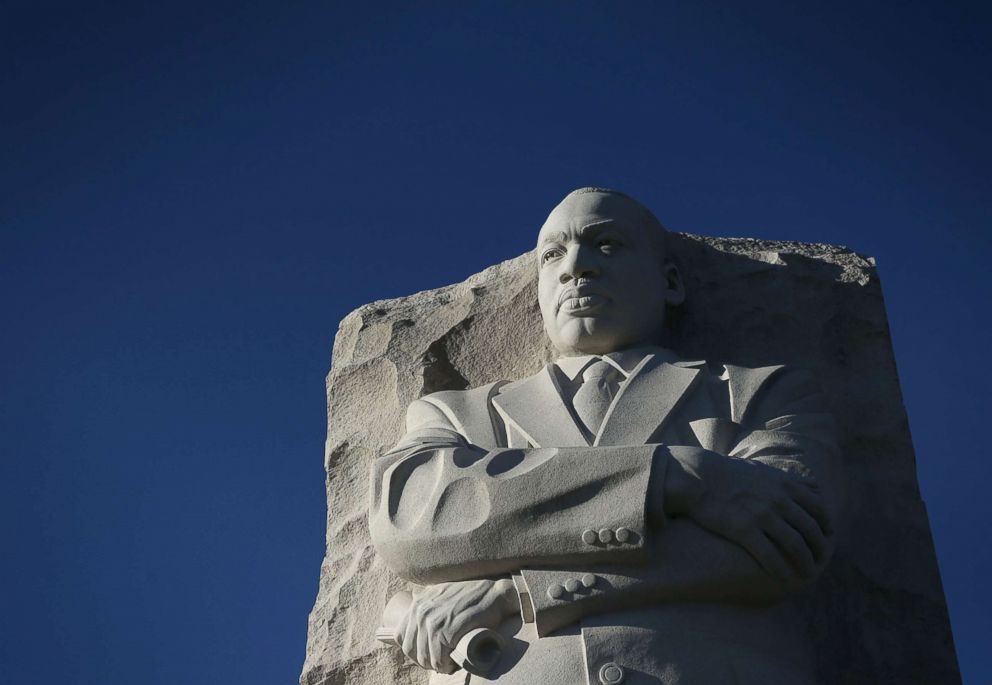
A ceremony will also take place Wednesday at the Martin Luther King Jr. Center for Nonviolent Social Change in Atlanta, Georgia. The Martin Luther King Jr. Peace Prize will be bestowed on several recipients, including 98-year-old Benjamin Ferencz, who investigated Nazi war crimes and prosecuted Nazi war criminals after World War II.
Many visitors to the center arrived with flowers to place at the tomb in the nearby Martin Luther King Jr. Historical Park, where King and his wife, Coretta Scott King, who died in 2006, were buried.
